Courses and conferences
From consulting and strategy development to implementation and support, our comprehensive services can help your business thrive.
Ear Training and Transcription
Developing skills to write and understand the music inside our heads or already existing music.
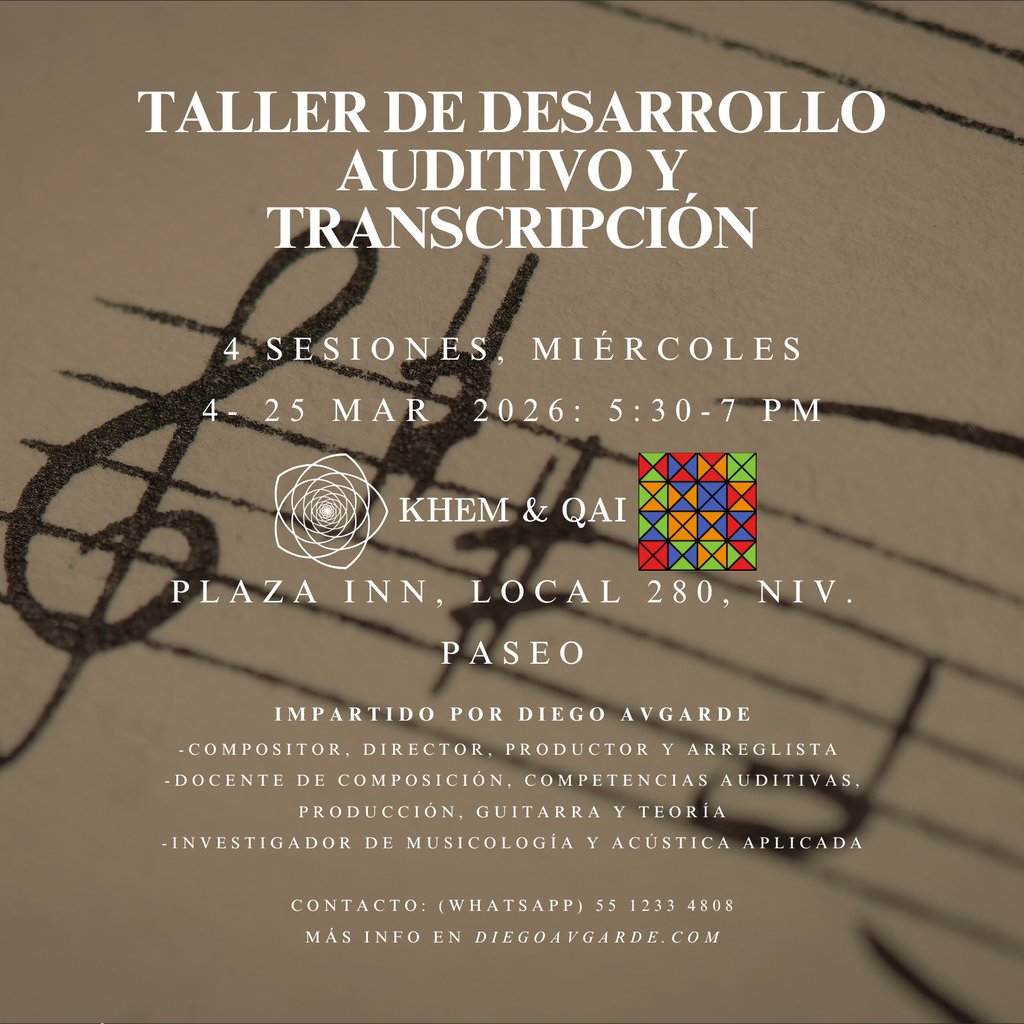

More courses coming soon
Contemporary Composition Course (2nd gen)
Bi-monthly modules up to 3-year program covering genres from pop to film scoring and career development.
Universal Principles of Musical Harmony
Multidisciplinary seminar combining thermodynamics, philosophy, cybernetics, anthropology and acoustic physics.
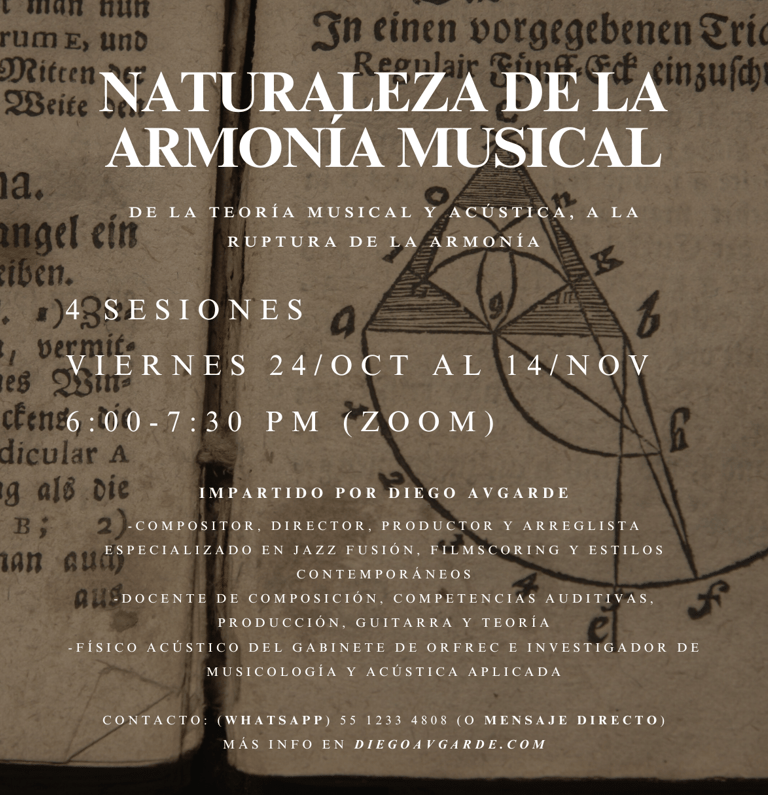

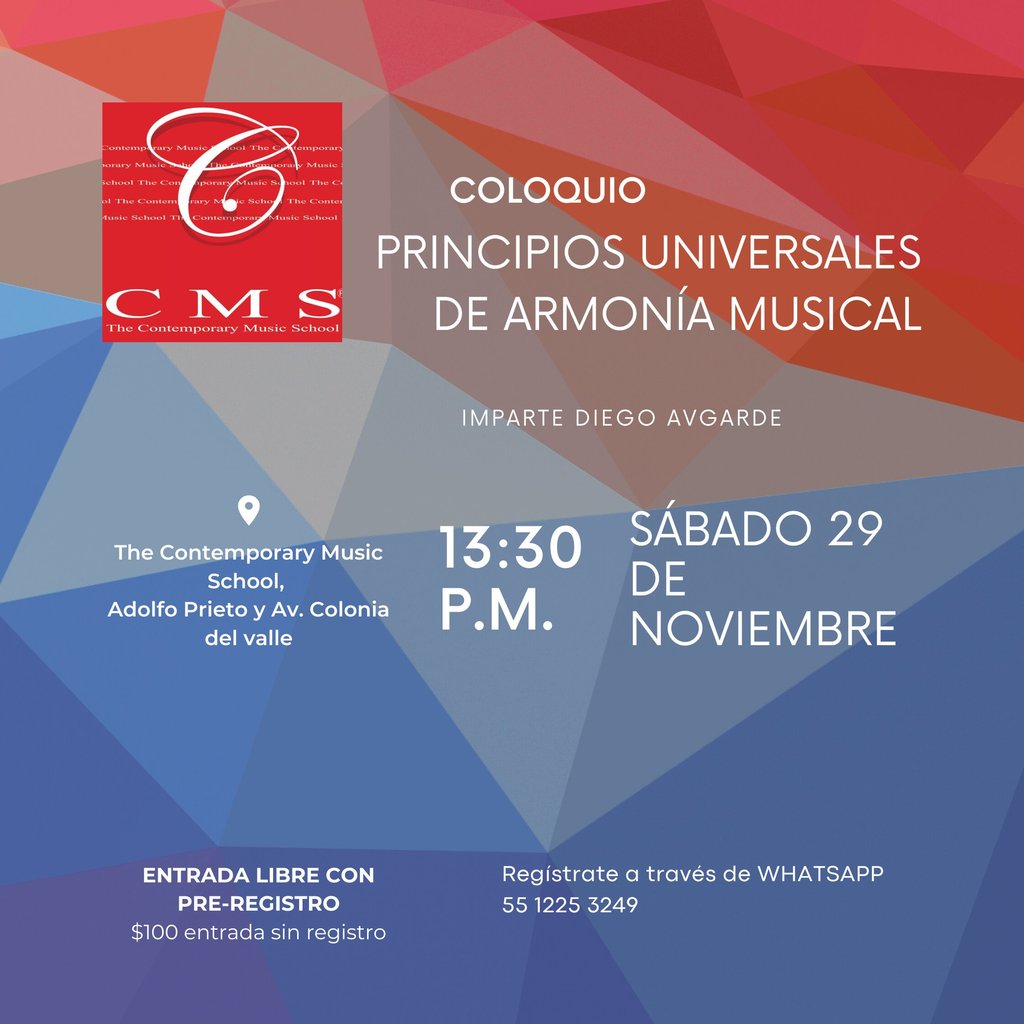

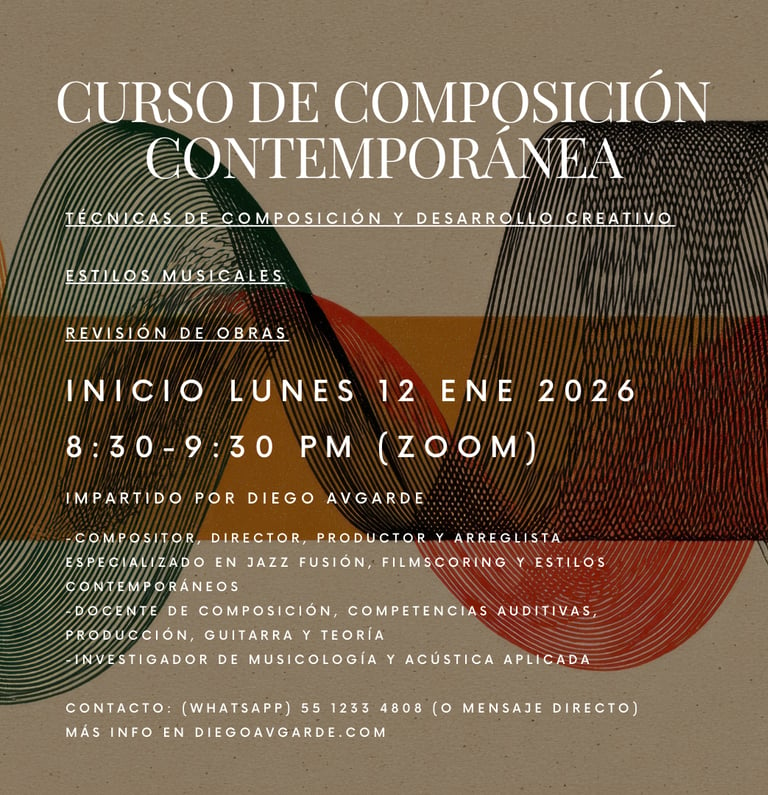

Nature of Musical Harmony
Explores acoustic foundations of harmony through physics, physiology and cognition.
Contemporary Composition Course
Bi-monthly modules up to 3-year program covering genres from pop to film scoring and career development.
René Vaderi — Guest Lecture
Topics: AI, music theory, acoustic physics and research directions.
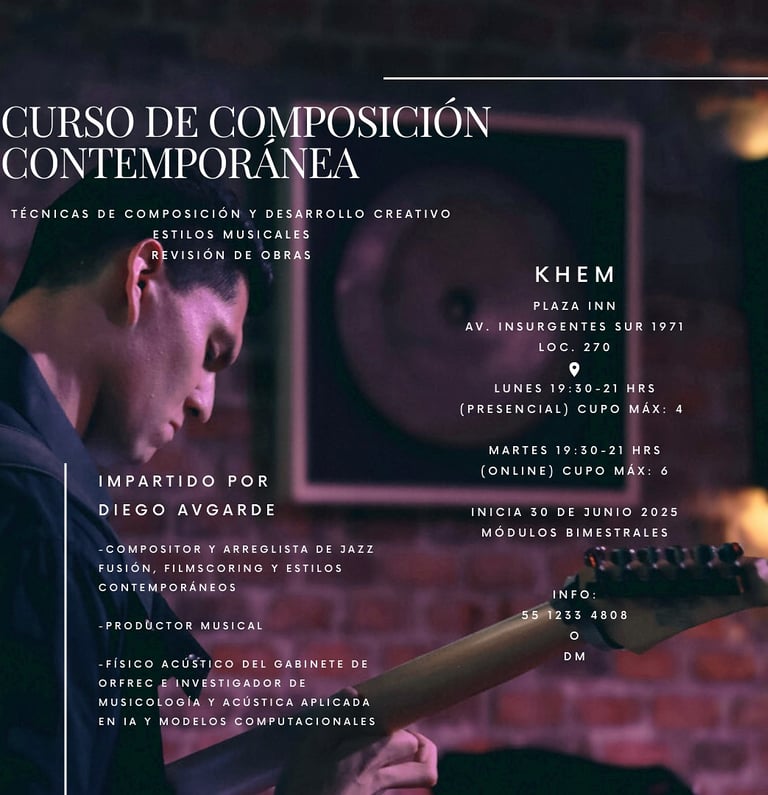

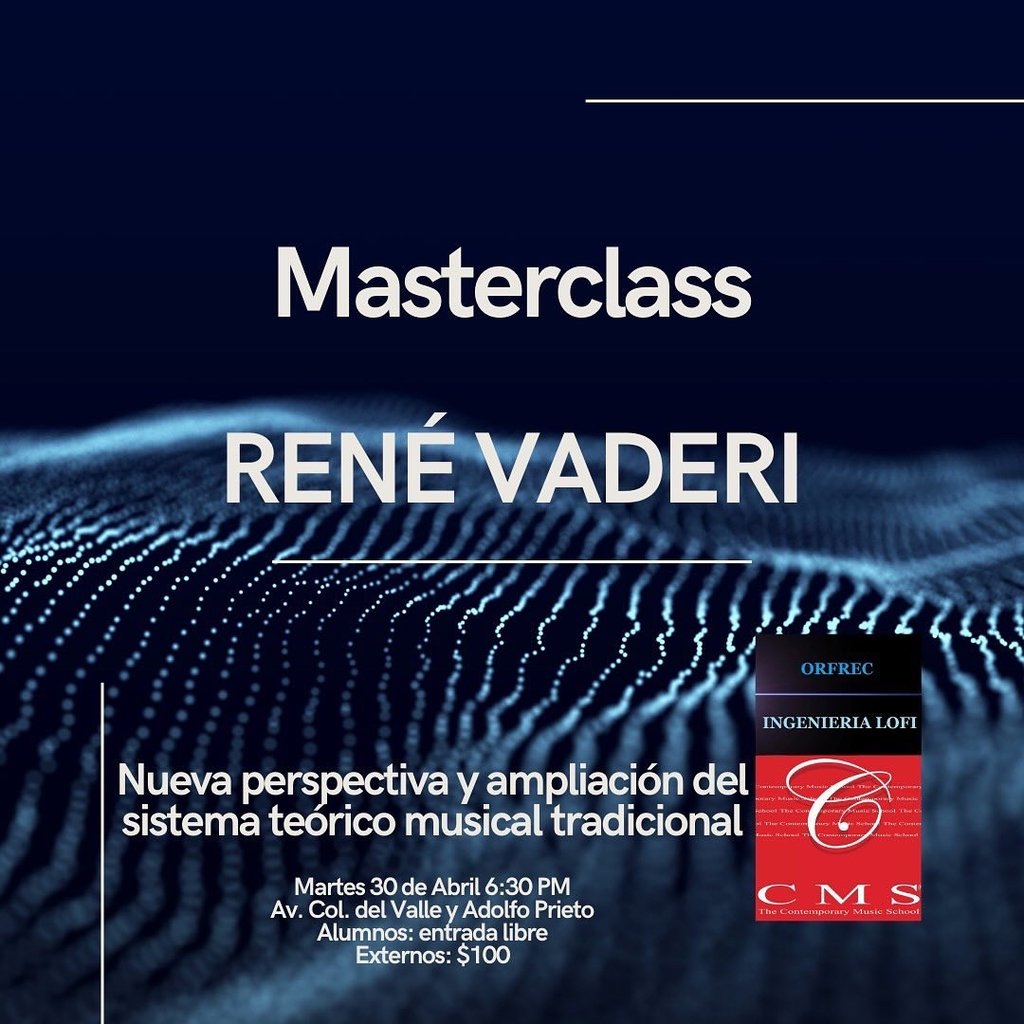

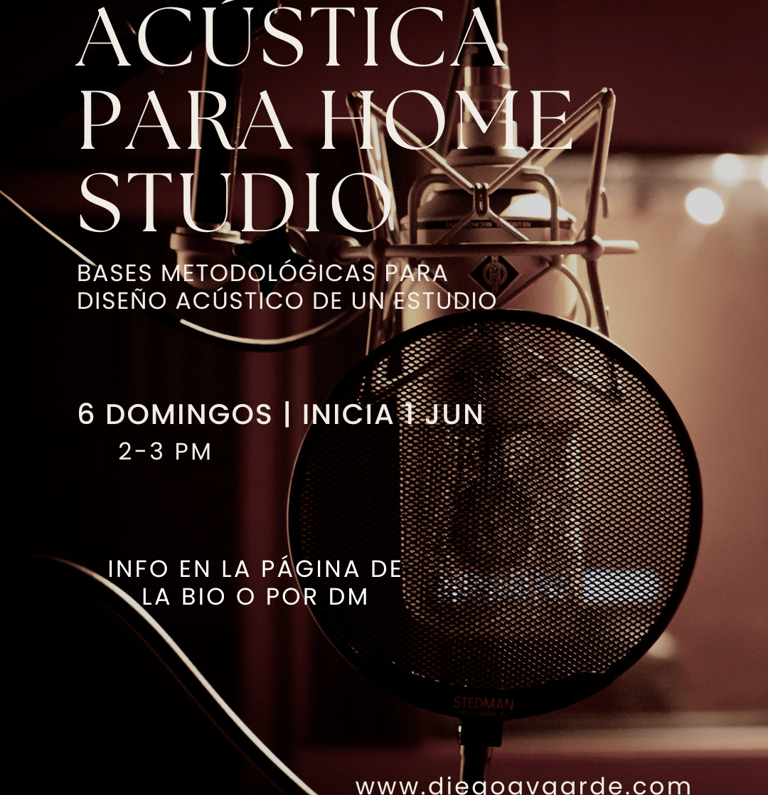

Home Studio Acoustics
6 sessions covering sound behavior, phase, reflections, bass traps and RT60 calculations.
